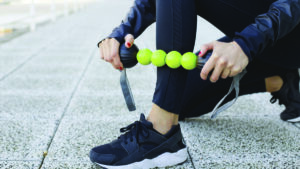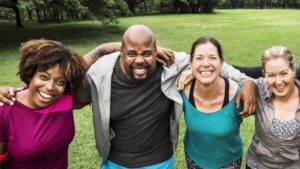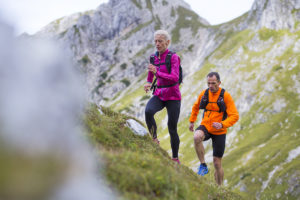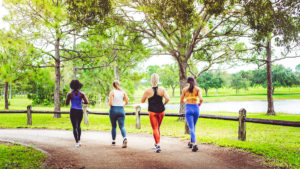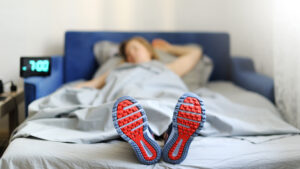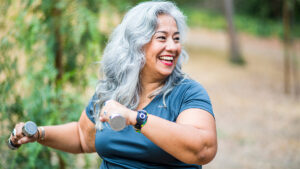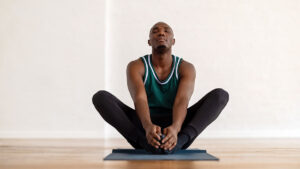Recovery Strategies
5 Best Stretches to Relieve Desk-Related Discomfort
Why Desk Time Hurts Your Body Spending long hours sitting at a desk—whether for work, school, or leisure—can take a toll on your body. Over time, inactivity leads to tight…
Why Rest Is the Secret Ingredient to Getting Stronger
Why Recovery Deserves More Credit If you’ve ever pushed through a tough workout, you know the soreness that comes after. But did you know that’s when the real magic happens?…
Social Connectedness, Strengthening Bonds, Strengthening Health
The fundamental human need for social connection is as intrinsic as the need for food and shelter. This innate desire to form meaningful relationships profoundly influences overall health and well-being….
The Nature Prescription
It’s easy to feel stressed, distracted, or even disconnected with today’s uncertainties and fast-paced society. But there’s one powerful solution that doesn’t cost anything and is right outside your door:…
Time Spent Outdoors Boosts Health, Fitness, and Well-Being
In an increasingly digital and fast-paced world, the call of the wild is more than poetic—it’s essential to human health. Emerging research shows that spending time outdoors is a profoundly…
A Comprehensive Approach to Lasting Wellness through Holistic Health
In today’s fast-paced world, many individuals seek more than just physical fitness—they crave complete well-being. Holistic health offers a transformative approach that integrates the mind, body, and spirit, helping people…
Enhancing Sleep Quality Through Exercise
Sleep plays a critical role in human health, affecting everything from mood and immune function to cognitive performance and recovery. As public awareness of sleep’s importance grows, fitness professionals and…
Integrating Exercise into Clinical Mental Health Care
In recent years, the role of exercise in mental health treatment has gained significant attention. Beyond its physical benefits, regular physical activity is now recognized as a valuable component in…
Exercise and Its Impact on Mental Well-Being
The Impact of Exercise on Mental Well-Being Exercise is widely known for its physical benefits, but its impact on mental well-being is just as significant. Whether it’s a brisk walk,…
Weight Lifting Recovery Tips
Weightlifting is an excellent way to build strength, improve muscular endurance, and enhance overall fitness. However, proper recovery is essential to optimize muscle growth, prevent injury, and ensure long-term progress….
Cold-Water Immersion: Helpful or Harmful?
From swimming in cold rivers and lakes to ice baths after sports, enthusiasts swear by the physical and mental health benefits of cold-water immersion. Cold water immersion in baths, showers…
How Exercise Reduces Depression
Physical activity, particularly aerobic exercise, is known to reduce depressive symptoms, but how is not understood. Researchers from University College London reviewed multiple studies on depression, exercise, motivation, dopamine transmission,…
Children’s Fitness Levels and Teen Brain Fitness and Mental Health
Higher levels of motor and aerobic fitness in childhood are linked with better cognitive performance and mental health in adolescence, as reported in Sports Medicine (2024). Researchers from University of…
More Exercise—Better Sleep
New research shows value of exercise in promoting good quality sleep Physical training can make the difference between a good night of restorative sleep or tossing and turning, according to…
5 Ways to Optimize Exercise Recovery
Here are 5 tangible exercise recovery practices to incorporate into your fitness routine.
Sleep Benefits for Exercise and Nutrition Goals
Here is more support for explaining to your clients why it’s important to get a good night’s sleep regularly and how sleep benefits them.
Sleep Consolidates Motor Memory
New research outlines the mental process for solidifying new motor memory and highlights the role of deep restorative sleep.
Guidelines for Exercise and Mental Health
Recommended guidelines for exercise and mental health, which facilitators like personal trainers or group exercise instructors can use.
Low-Intensity Training Has High Popularity
Fitness consumers are motivated to exercise to promote a long and healthy life, and also seek low-intensity training and restorative options.

